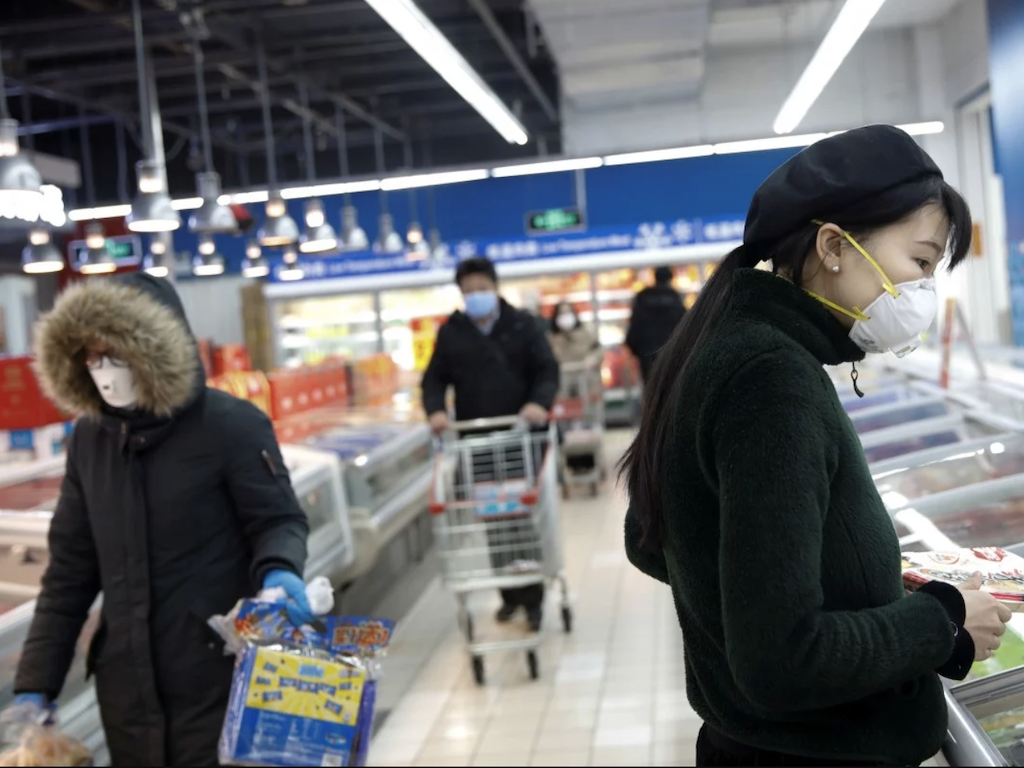Coronavirus Hits Chinese Supply Of Imported Meat, Will Consumers Opt For Local & Plant-Based Instead?
3 Mins Read
The coronavirus pandemic has hit global supply chains as major transportation links have ground to a near halt in an effort to combat the spread of the disease. But while the outbreak in China appears to have eased opening up the chance for the Chinese economy to move back towards capacity, Western countries – key suppliers of high-end meat, dairy and seafood – are still in the midst of dealing with the virus. This is causing a second round of supply shock, this time affecting China’s imported premium goods from Europe and North America. Is this an opportunity to usher in a shift towards diets based on regionally grown plant foods that leave a much smaller impact on the planet?
Overnight reporting from the World Health Organisation (WHO) showed that over 85% of the new cases of infections are located in Europe and the United States. Infections have also skyrocketed in Australia and New Zealand, whose governments are now enforcing stricter lockdowns alongside their European counterparts in a bid to slow down its spread.
These Western countries are key suppliers of meats – lamb, pork, beef – as well as seafood and dairy cheeses and milks that end up on the shelves of high-end supermarkets in China. While China’s domestic economy begins to pick up, global travel restrictions and tighter social distancing rules are now affecting the country’s affluent consumers who are experiencing a second supply shock of premium food imports.
“We have already seen Argentinian and Brazilian slaughterhouses forced to close…My guess is by next week, half of the world’s slaughterhouses will be closed and the other half will be working on reduced shifts to supply local markets,” William Kerins told the SCMP. Kerins is the founder of Beijing-based premium meat sourcing company USource.
While wealthy Chinese shoppers may be impacted, the strain on global supply chains may mean good news for the environment, especially as many of the imported premium products – mostly animal-based – are some of the most carbon-intensive in the world. It isn’t just the air freighting that contributes to the environmental impact of animal products. Even if we discount the emissions from the distance that food has to travel, the footprint of food comes predominantly from the production process, such as the agricultural farming method, amount of land and water wastage, contribution to deforestation and methane gas emissions, in the case of animal livestock.
Figures from the UN show the animal agriculture industry generates around 18% of global greenhouse gas emissions – more than all transportation combined – and uses around 70% of arable land, in the process driving destructive practices such as deliberate deforestation, as well as contributing to biodiversity loss and water pollution.
Scientists have long urged for a mass transition into a plant-centric food system as one of the crucial actions that the world must take if we are to fight the climate crisis. The “planetary health diet” drawn up by the EAT-Lancet Commission recommends at least a 50% reduction in red meat alongside a doubling of vegetables, fruit, pulses and nuts in our diets.
China is a country with a massive population of 1.6 billion and a growing middle-class demographic of richer consumers expected to comprise 75% of urban households by 2022. With a disruption to the supply of imported animal food products due to the coronavirus, many shoppers in China are already beginning to replace expensive imports of meat and dairy with more basic ingredients, according to the SCMP.
Perhaps what this phenomenon is inadvertently presenting is an opportunity to transform the current unsustainable food supply into one that is centred around local plant-based produce. As renowned trend-spotter Li Edelkoort said in a recent interview, the coronavirus pandemic is causing a “quarantine of consumption” that brings an opportunity to usher in a better system for the people and the planet.
Read our earlier news coverage of Covid-19 here & find more news on the climate emergency here.
Lead image courtesy of Reuters.




